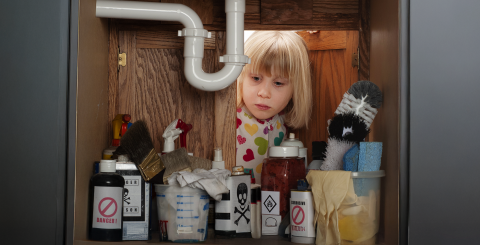How do you maintain good relations with your neighbours?

If you want to keep your children and family safe, you need to maintain good relations with your neighbours, as they are your first recourse in the event of a problematic situation. Whether you’re a newcomer or an existing resident, you need to maintain good relations with your neighbours. Come and learn how.
As soon as you move in
Maintaining good relations between neighbours begins when newcomers move in. As soon as you move into a new home or neighbourhood, you should try to get to know your neighbours and create new relationships. Solutions for getting off on the right foot are available.
The mistake some people make is to avoid making new friendships. This makes it more likely that your new neighbours will not only remain strangers to you, but also think they’re not good enough for you. The same goes for existing neighbours who don’t welcome newcomers.
For newcomers
As soon as you move into a new apartment or neighbourhood, you need to make a gesture toward your new neighbours. The hassles of moving in can make you forget your manners, but taking a moment to go say hello to your neighbours is important.
First impressions form the basis of many relationships. To meet the neighbours, you can inform them that you’re in the middle of moving in and wanted to let them know. By doing so, you’ll show them that you intend to be a courteous neighbour.
For existing neighbours
While the task often seems complicated for newcomers, the mission is a lot easier for existing neighbours. As an existing neighbour, you often mistakenly think it’s up to your new neighbour to make all the moves. But if you look at it that way, you’re ignoring the discomfort someone may feel in a new environment, especially if they’re shy.
Moving in is an ordeal, and while some people want to do it on their own, others are hoping for a little help. Your new neighbours won’t necessarily ask you for help, so if you offer to help them, they’ll respond based on what they need without you having to insist. This small gesture will form the basis of a lasting relationship between you.
However, some people find it hard to accept help from others and may feel that they’re bothering you. Besides, everyone likes to keep a few things private. You have to respect your new neighbour’s privacy without judging them for it. You can turn to a variety of stylish solutions to create privacy in your yard if you have one.
During your relationship as neighbours
Regardless of whether the first contact was successful or not, you’ll do most of the work during your relationship as neighbours. Relationships between neighbours are often difficult, and there may be frequent fights between neighbours, especially in shared buildings. Relationships between neighbours require less effort when no space is shared. In any case, you need to:
- Know how to be careful
- Get in the habit of warning your neighbours
- Learn to be more tolerant
These habits will help ensure that you get along well with your neighbours.
Learning to be careful
When you move into a building where other people live, you should always remember that you’re not alone and that everything you do can affect your neighbours. Respecting these boundaries will help you peacefully coexist with your neighbours. To do this, you must establish a positive reciprocity principle where you respond in kind to nice behaviour.
In other words, you should do something nice for your neighbours when they do or you expect them to do something nice for you. In fact, you should treat them as you want to be treated, even if they don’t respond in kind. You should also keep in mind the two main causes of conflict between neighbours: noise and odours. Your goal is to avoid situations where these things could upset your neighbours.
No matter who your neighbours are, these two nuisances are the main sources of discord. You therefore need to make sure that the smell of smoke or garbage coming from your apartment or yard does not upset your neighbours. The same concerns apply to noise—music that’s too loud, guests that are too noisy, or the clickety-clacking noise of heels do not contribute to good neighbourly relations.
Learn to be proactive
Odours and noise are sources of bickering between neighbours mainly because they’re not always easy to control. So you need to be proactive. Be sure to warn your neighbours as soon as you become aware of a situation that they’ll find unpleasant, whether or not it’s your fault. Warning them will prevent your relationship from deteriorating.
For example, if you’re throwing a party, let them know the date beforehand. Also warn them if your trash cans might temporarily be a nuisance. The idea here is not to ask their permission, but rather to prepare them for what’s to come. In short, it’s a matter of informing them and apologizing before and after the event for the inconvenience caused.
Be tolerant
You no doubt expect your neighbours to extend the same courtesies to you as you do to them. You should know that they won’t always do this. Sometimes your neighbours may inadvertently forget to return the consideration you show them, which could lead to some bickering.
However, you can avoid these situations by being tolerant. To do this, you should react as you would have wanted your neighbour to react if it was you who was at fault. You need to be tolerant and ready to forgive them, as long as they’re acting in good faith.
To do this, you need to be diplomatic and avoid getting angry. You need to approach the problem calmly and make clear the harm you’re suffering by explaining how it makes you feel. No matter how hard it is, you should always give them another chance. However, if the problem continues, you can use the recourses available to you.
In this case, your home insurance may provide you with legal assistance during the proceedings.
Small kindnesses between neighbours
If you don’t want to get to the point where the courts will have to decide disputes between you, you need to try at all costs to preserve the relationship with your neighbours at every opportunity.
Festive occasions
The best way to improve your relations with your neighbours is through a party. For annual celebrations, neighbourhood parties, or special business or family occasions, consider inviting your neighbours whenever possible. Just telling your neighbours about celebrations at your home is fine, but creating a bond will help your future relations.
Creating shared memories reduces the risk of squabbles, especially petty ones. Inviting them to the odd party will make it easier to talk to each other as neighbours.
Routine services
Apart from parties, which may be rare, you can maintain good relations with your neighbours by frequently exchanging small services. Such routine actions may include:
- Carpooling
- Sharing tools
- Occasional babysitting
- Keeping an eye on their house when they’re away
- Taking care of their pet
- Watering their plants when they’re away
You can also offer to help out on other occasions, such as when damage occurs at your neighbours’ home.
If ever a problem arises, despite your good intentions, you can get expert help through the legal assistance included in your home insurance policy.




